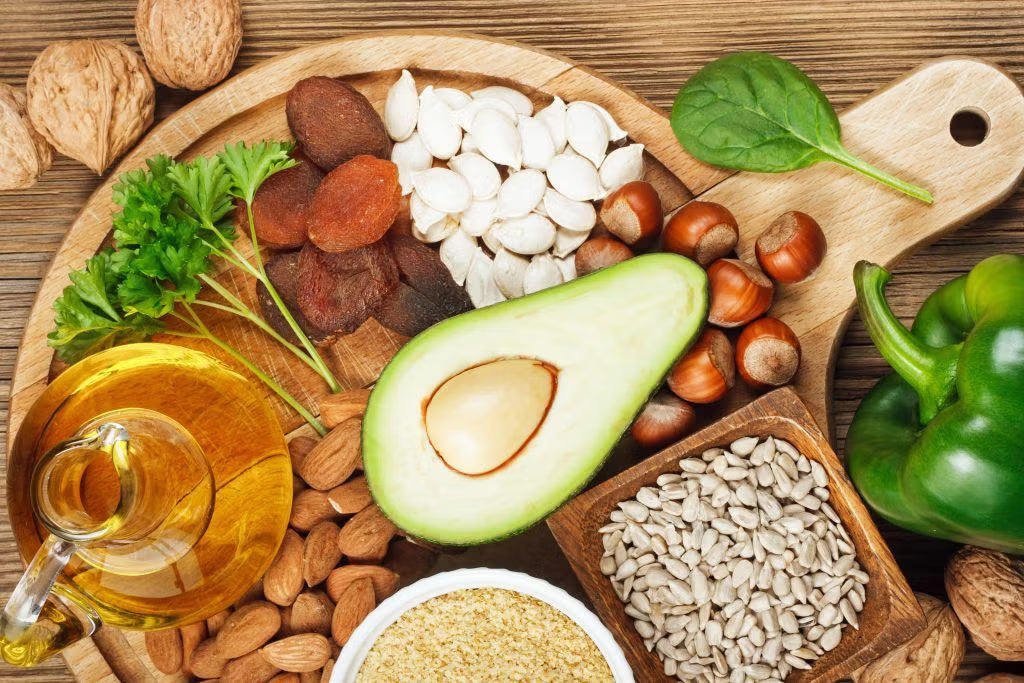
The Ultimate Guide to Vitamin E for Skin: Benefits, Uses & Natural Glow
Share
Vitamin E is one of the most powerful antioxidants in skincare, often called the "skin vitamin." Whether applied topically through oils and creams or consumed in your diet, Vitamin E offers a wide range of benefits that help your skin stay radiant, youthful, and healthy. Let’s explore why Vitamin E has become a skincare essential and how you can incorporate it into your routine.
What is Vitamin E?
Vitamin E is a fat-soluble antioxidant found naturally in many foods such as nuts, seeds, and leafy greens. In skincare, it is commonly used in oils, serums, and creams due to its ability to protect, repair, and nourish the skin.
Top Benefits of Vitamin E for Skin
1. Deep Moisturization
Vitamin E acts as an excellent emollient, locking moisture into your skin. This makes it highly effective for treating dryness, flakiness, and rough patches.
2. Anti-Aging Properties
As a potent antioxidant, Vitamin E fights free radicals—the unstable molecules that speed up skin aging. Regular use helps reduce fine lines, wrinkles, and sagging, leaving your skin firmer and more youthful.
3. Soothes Irritation and Redness
Vitamin E’s anti-inflammatory properties make it perfect for calming skin irritation, redness, and sunburns. It supports the skin’s healing process and provides relief to sensitive or inflamed areas.
4. Scar and Dark Spot Reduction
Vitamin E is known to improve skin texture by fading scars, acne marks, and hyperpigmentation. Over time, it promotes even-toned, smoother skin.
5. UV Protection Support
While Vitamin E is not a replacement for sunscreen, it works synergistically with SPF to protect the skin from oxidative damage caused by UV rays.
6. Promotes Wound Healing
Vitamin E supports the skin’s natural repair process, making it beneficial for healing small cuts, burns, and blemishes.
How to Use Vitamin E for Skin
-
Vitamin E Oil – Apply directly or mix with a carrier oil like coconut or jojoba.
-
Moisturizers/Serums – Look for skincare products enriched with Vitamin E.
-
DIY Remedies – Mix Vitamin E oil with aloe vera gel for a natural healing mask.
-
Dietary Sources – Include almonds, sunflower seeds, and spinach in your diet for internal benefits.
Who Should Avoid Vitamin E?
While Vitamin E is generally safe, people with very oily or acne-prone skin should use it cautiously, as it can sometimes clog pores. Always do a patch test before applying directly to your face.
Final Thoughts
Vitamin E is a natural skin protector and healer that enhances hydration, fights aging, and supports overall skin health. Whether applied topically or consumed through food, it remains one of the most versatile skincare nutrients.
HealthLine on Vitamin E Benefits
https://www.healthline.com/nutrition/vitamin-e
